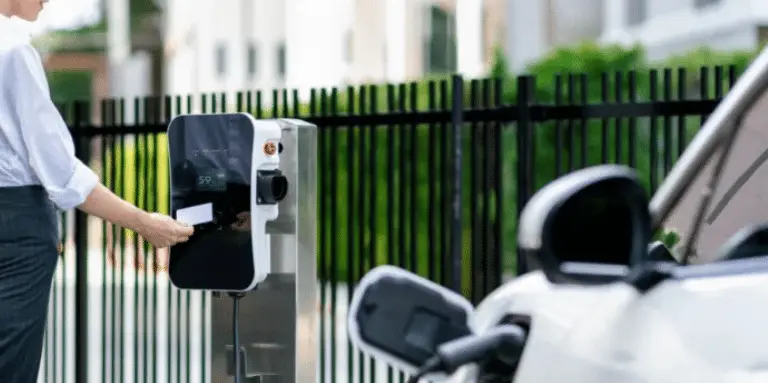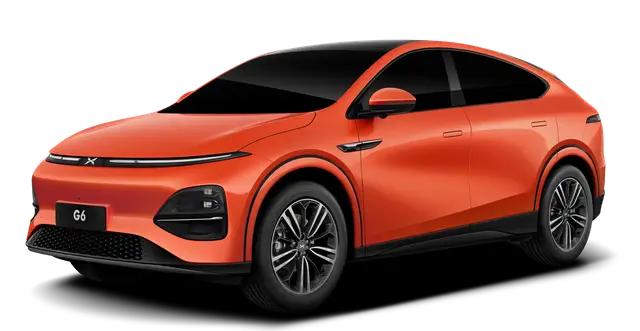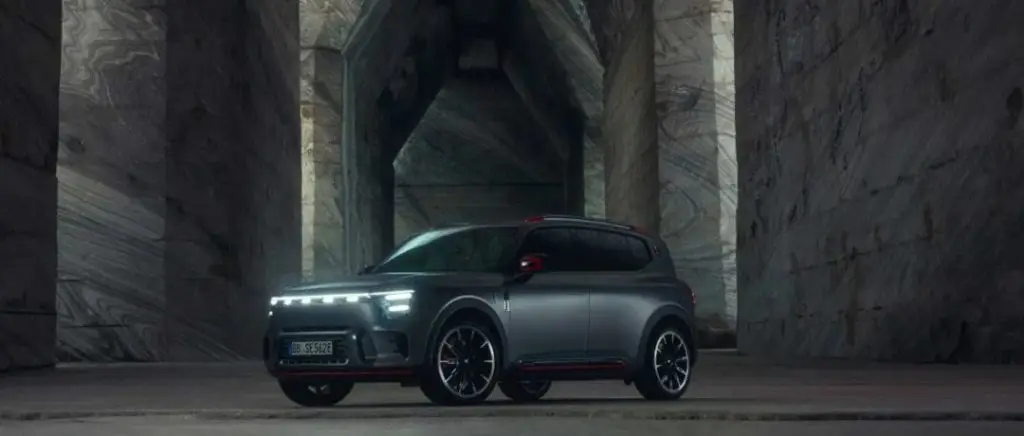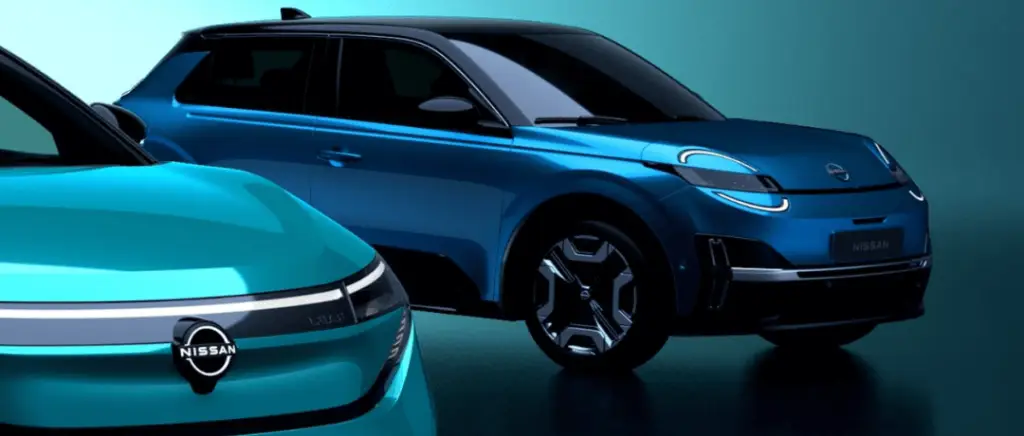Would you like to order your Beev recharge card ?
Our card makes it easy to recharge your electric car at any charging station in Europe.
What are the concrete changes for electric vehicle users?
Credit card payment mandatory for charging stations: the electric charging revolution is underway
The April 13, 2024 marks a significant turning point for the charging of electric cars in Europe. New regulations and initiatives come into force, aimed at facilitating the adoption of electric vehicles and improvingcharging infrastructure.
All new fast-charging stations with a minimum capacity of capacity of at least 50 kWcapacity display the cost of charging in euros per kilowatt-hour (€/kWh) in a transparent manner.following the pricing model per liter for conventional fuels.
In addition to this requirement for clear display of tariffs, electric vehicle (EV) users will need to have real-time access to information on charging prices and the availability of charging points via digital channels.
This increased transparency will enable EV owners to better manage their costs and plan their recharges more efficiently. What's more, these new charging stations will have to be equipped to accept credit card payments, without imposing additional charges compared to the use of a dedicated recharging card or a specific EV app, as is often the case today.
NB: It is important to note that these regulations only apply to new fast-charging stations. Existing installations have until 2027 to comply with these standards.
Currently, there are several ways to pay at public charging stations:
- Payment by badge: Badges are the most common means of payment, offered by virtually all charging networks. However, it can be costly to have several badges for different networks.
- Pay-as-you-go: The 2019 LOM law requires charging infrastructure operators to provide the option of "pay-as-you-go". So, even without a subscription or badge, users can pay for recharging with a prepaid card.
- Payment by credit card: Although commonplace in our daily lives, payment by credit card is still marginal when it comes to public charging stations.
Fortunately, the AFIR "Alternative Fuels Infrastructure Regulation", which will come into force in 2024, will make payment by bank card compulsory at electric car charging points (in addition to other payment methods). From now on, electric vehicle users will be able to pay easily at charging or refueling points "using payment cards or contactless devices and without the need for a subscription, with full price transparency".
This measure will simplify life for drivers and put an end to intrusive subscriptions.
The transition to payment by credit card will help reduce maintenance and management costs, while complying with European regulations. So get ready for a smoother experience when recharging your electric vehicle!
What are the implications for charging station operators?
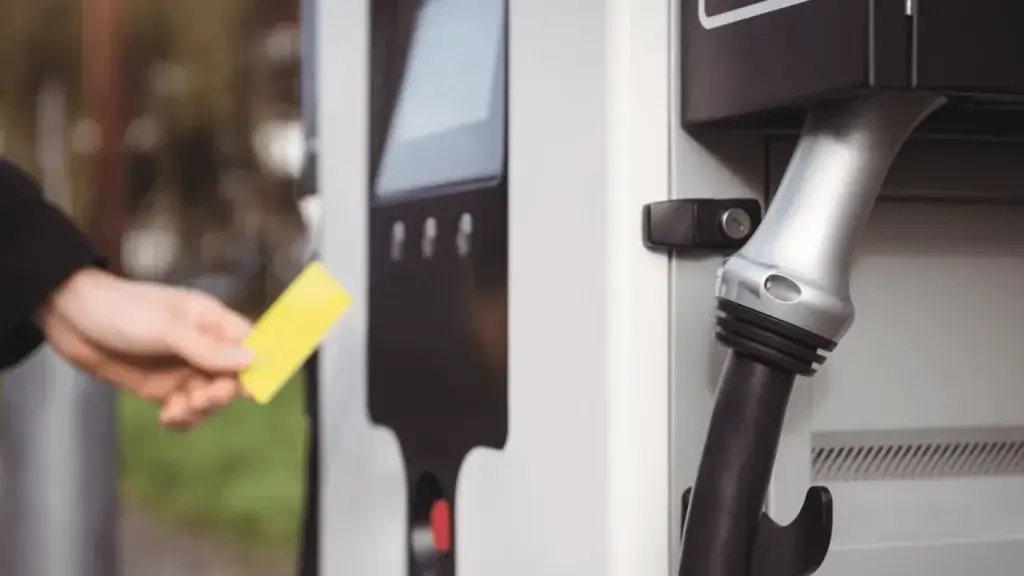
For charging station operators, this evolution implies several changes:
- Compliance Operators must adapt to the new regulations, and offer a credit card payment terminal for all new bollards installed with a power rating greater than 50 kW in France.
- No more operator badges : With payment by credit card, operators will no longer need to manage specific badge systems.
- Cost reduction Payment by credit card simplifies terminal management and reduces maintenance costs.
- Standardizing the process By adopting bankcards as the standard means of payment, operators are helping to standardize the recharging process.
Basically, payment by credit card represents a significant step forward for charging station operators, simplifying transactions and improving the efficiency of the electric charging infrastructure.
Exponential growth in the number of charging stations: electric recharging becomes the norm
The increasing electrification of our vehicles is well underway, with charging stations playing an essential role in this transition. In France, this trend is translating into a significant reduction - up to five times - in a vehicle'scarbon footprint throughout its life cycle. Between 2015 and 2019, the number of charging stations tripled, with a further 15% growth between March 2019 and March 2020, contributing to an increasingly dense network across the country, particularly in major cities and along freeways.
To date, France has 114,386 charging points, with 170 charging stations open to all for every 100,000 inhabitants, representing an increase of 48% over the last 12 months. The targets for 2030 are 400,000 public charging pointswith an additional investment of 200 million euros via the Advenir programprogram, as well as 68 million euros in aid for selected winners to deploy charging stations.
France is now one of Europe's leaders in the field of electric charging stations, and is constantly improving its network coverage to keep pace with the exponential growth of electric vehicles.
Conclusion
In conclusion, the changes scheduled for April 13, 2024 for electric car recharging in Europe mark a major transition towards transparent pricing and mandatory acceptance of payment by bank card. These changes aim to make recharging smoother for users and reduce management costs for operators. With the rapid growth of charging infrastructure, particularly in France, the country is positioning itself as a European leader in this field, contributing to the electrification of transport and the reduction of its carbon footprint.
If you have any questions or would like to install a charging station, Beev Expert Mobilité Électrique is here to help.
If you would like to know more about the charging station tax credit at 2024please consult our article on the subject.
With Beev
Switch to
Electric car
or install your
Charging station
For individuals and businesses
